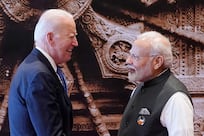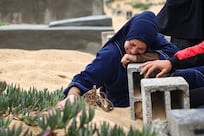The Kurdish People’s Protection Units or YPG is one of the most important fighting forces confronting ISIL in northern Syria. Given the toxic mix of rebel groups alternatively fighting the Assad regime and ISIL in the area, it has been difficult for the US-led anti-ISIL coalition to secure a dependable and able ally on the ground. In the Kurds, the coalition has found an ally but it stands to reason that their allegiance carries a price.
Having driven ISIL militants from the border town of Kobani, the Kurds proved to be a critical defence against the extremist group in an area devoid of coalition boots on the ground. Kurdish peshmerga fighters in northern Iraq also maintain key ground positions around the city of Mosul and provide critical intelligence for coalition air strikes on ISIL. As The National reported yesterday, the YPG looks set to cut a key ISIL supply line that runs through the town of Tal Abyad to the ISIL “capital” of Raqaa. If it succeeds, the YPG will force ISIL to use a more dangerous route, which runs through the cauldron of rebel fighting forces around Aleppo. That would be the only way ISIL would be able to get fresh fighters and weapons from the Turkish border. This would be a big setback for the extremists even as they celebrate their takeover of Mosul one year ago and the more recent conquest of the Iraqi city of Ramadi.
For beleaguered Kurdish border communities, fighting ISIL’s onslaught is a matter of survival. But as their value on the battlefield increases, so will their calls for autonomy. Such autonomy will have a domino effect for the delicate geopolitical balance that exists between the Kurds, Turkey and Iraq’s federal government.
The Kurdish issue is back on the agenda after the remarkable gains of the pro-Kurdish HDP in the recent Turkish elections. There is fresh discussion on Kurdish rights and the possibility of statehood. HDP leader Selahattin Demirtas has said that his party will not join any coalition government with the ruling AKP unless Ankara stops its covert support for extremist groups in Syria. If Turkey warms to the Kurds, even in the slightest degree, it will make arming them that much easier for the coalition.
For now, though, the Kurds are on the front lines of the battle against ISIL and the coalition can’t afford to lose them. After the menace of ISIL has been dealt with, the Kurds may try to call in the favour. It is best to be prepared for this.





